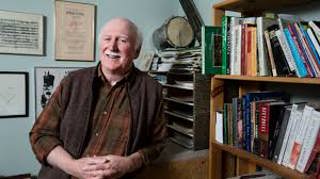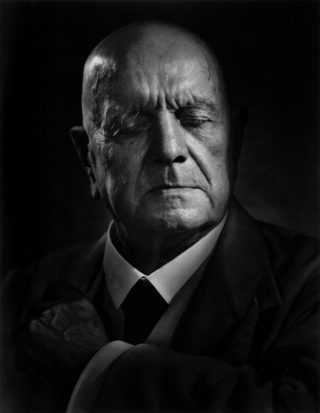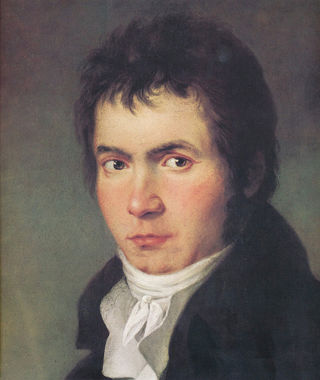
Bartok Violin Duos and Social Duoing
Bartok's 44 Violin Duos are a triumph of Bartok's devotion to the folk music of Eastern Europe. 42 of the 44 are based on field recordings Bartok collected in his travels, many of which you will hear today. The social duoing project, where I played all 44 duos with 44 violinists from around the world, was started as a result of the pandemic, but was also made possible by this forced pause in travel and work. Enjoy!
4 Juni 202056min

How Musical Revolutions Were Created, Part 2 - w/ Jan Swafford
Jan Swafford was such a fantastic guest last time that I thought we had to have him back on! During these past two weeks, we discussed how so much of the revolutionary music in the history of classical music was influenced by storytelling, whether it was Monteverdi, Beethoven, Berlioz, Wagner, Debussy, Ives, Stravinsky, or Schoenberg. This week, on Part 2, we discuss the final 4 composers, including one of the most beautiful descriptions of Ives I've ever heard. Don't miss this episode! You won't regret it.
1 Juni 202048min

Sibelius Symphony No. 7
Sibelius' 7th Symphony is a piece that is barely a symphony at all, and yet it carries symphonic logic throughout. It's only 20 minutes long, in one movement that never stops evolving, with a form that has sparked many debates, and with an ending that is as shocking as any in the Western Repertoire. Simply put, it is Sibelius at his best, and so today we'll take apart this incredibly complex piece, talking about its form, its stunning metric modulations, its inspiration, and of course, its abiding emotion.
28 Maj 202044min

How Musical Revolutions Were Created, Part 1 - w/Jan Swafford
Jan Swafford was such a fantastic guest last time that I thought we had to have him back on. This week(and next week), we discussed how so much of the revolutionary music in the history of classical music was influenced by storytelling, whether it was Monteverdi, Beethoven, Berlioz, Wagner, Debussy, Ives, Stravinsky, or Schoenberg. This week, on Part 1, we discuss the first 4 composers on the list, trying to understand the chicken or the egg question of which came first? The story? Or the revolution?
25 Maj 202039min

Respighi, "The Pines of Rome"
Respighi occupies a strange place in musical history. He is almost never considered to be one of the "greats," though his mastery of orchestral color is never doubted by anyone. Today on this Patreon sponsored episode, we'll look at his Pines of Rome. We'll talk about Respighi's extremely detailed program notes, his Strauss like gifts at portraying real life in his music, and the fact that Respighi, for all his innate conservatism, was actually the first composer to use electronic music in one of his works.
21 Maj 202041min

Quarantine, Richter, Kleiber, Dvorak, Zander, Wearing Different Hats, and Schumann w/ Zsolt Bognar
Zsolt Bognar is a Renaissance Man. He is a pianist, a writer, a thinker, and the host of Living the Classical Life, an amazing show where Zsolt sits down with some of the leading lights of the classical music world. Today I turned the tables and interviewed him in a wide-ranging conversation that touched on some of our favorite musicians and composers, our experiences wearing many hats in the classical music world, and of course, how we're dealing with quarantine life. This was a really fun conversation and I hope you enjoy it as much as I did!
18 Maj 202047min

Mahler Symphony No. 2, Part 3
At the end of 1893, Mahler could not find a way to end his 2nd Symphony. But the funeral of Hans Von Bulow, a conductor who Mahler worshipped even though Von Bulow hated Mahler's music, gave Mahler what he called "the flash that all creative artists wait for." In one of the most sprawling, dramatic, and narratively based movements he would ever write, Mahler embraced a kind of universal humanism that is inspiring to this day. We'll talk about this movement and the radiant Urlicht movement that precedes it.
14 Maj 202055min

Classical Music During the Pandemic
Today I was thrilled to have with me Matthew Szymanski of the Phoenix Orchestra and Aram Demirjian of the Knoxville Symphony on the show to talk about what classical music as a whole is going to need to do to respond to the current situation with COVID-19. This is a weedsy conversation that digs into streaming, the future, and the sobering realities of audience-free concerts. If you want to hear 3 musicians grappling in real time with this crisis and how we will come out of it, this is the show for you.
11 Maj 202044min






















